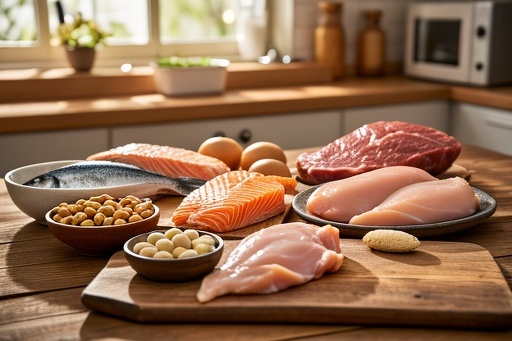
Download now to start your
weight loss journey

Download now to start your
weight loss journey
Mastering Nutrition: The Art of Reading Food Labels
Understanding Food Labels
Reading food labels is essential for maintaining a healthy diet. It's the first step in ensuring that you're aware of what you're consuming and how it affects your nutritional intake.
Creating an Effective Diet Plan
An effective diet plan incorporates a balance of macronutrients and micronutrients. Here's how you can create one:
- Identify Your Caloric Needs: Determine the number of calories you need per day. This varies based on age, gender, and physical activity level.
- Balance Macronutrients: Ensure your diet includes carbohydrates, proteins, and fats. Focus on whole grains, lean proteins, and healthy fats.
- Monitoring Food Labels: Regularly check the food labels for serving sizes, calories, and nutrient content. This helps in meal prepping and ensuring a balanced intake.
Ensuring Adequate Protein Intake
Adequate protein intake is crucial for muscle growth and repair. Here are some tips:

Vitamins are vital for bodily functions. A lack of vitamins can lead to deficiencies.

By mastering the skill of reading food labels and planning your diet, you can significantly improve your overall health and well-being.
Back to blog